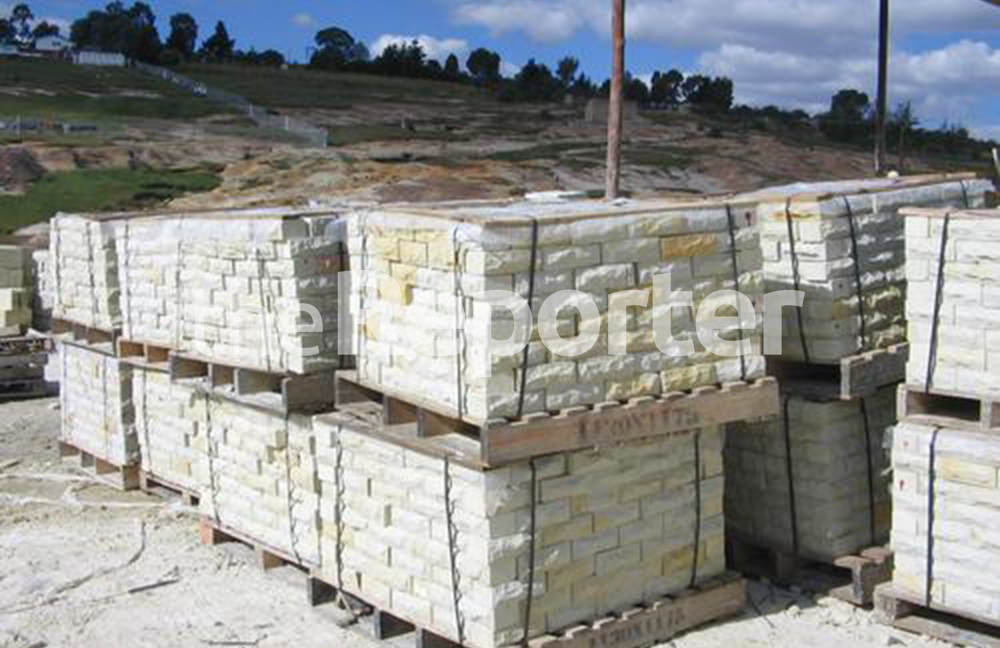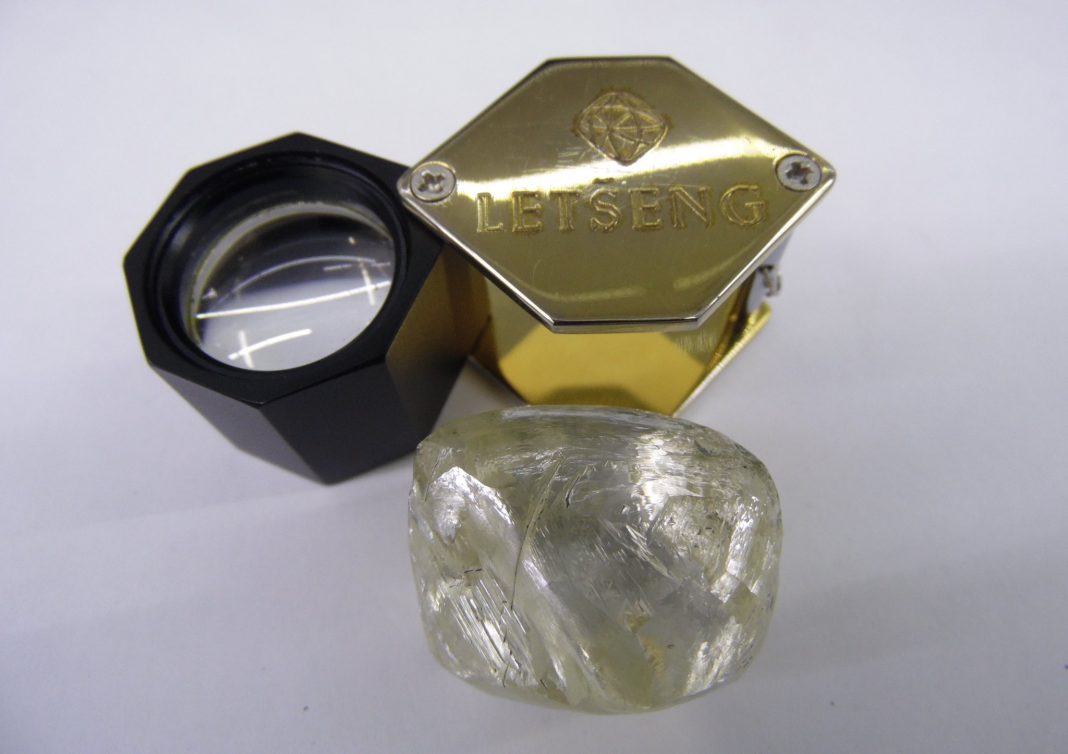By Matiisetso Mosala
A major quarrying operation is pushing for an out of court settlement to avoid being tried on charges of fraud, money laundering, tax evasion and illegal acquisition of an operating licence, according to the Directorate on Corruption and Economic Offences (DCEO).
However, the lawyers for Lesotho Sandstone Enterprise denied this, saying they are expecting the trial to go ahead.
The company, whose operation is based at Teyateyaneng in Berea, brands itself as the largest quarry of natural sandstone products in southern Africa. Among other things, it is accused of dodging M40-million in royalties by inflating its operating costs.
DCEO director Mahlomola Manyokole told MNN Centre for Investigative Journalism that the directorate was asked by Lesotho Sandstone’s lawyers “in consultative meetings” three weeks ago to settle the case out of court.
Manyokole said the DCEO “is at liberty to take the deal, as it would save us time and even resources to focus on other cases”.
But he warned that for the directorate to consider the proposal, the company would have to admit liability and bear some consequences for breaking the law. “If the deal is granted, the penalty could be lighter than in a trial,” he said.
However, Lesotho Stone’s lawyer, Advocate Thabang Letsie, said the company is not aware of the out of court settlement proposal and is expecting the trial to proceed.
“We have filed all answering affidavits and attached all other outstanding documents which the DCEO demanded. so, the case will be heard on a date still to be set,” Letsie said.
The case was lodged by the DCEO after it raided the company, seizing its assets, froze its accounts at Standard Lesotho Bank and First National Bank and placed it under curatorship pending investigations.
It also stopped Lesotho Stone’s quarrying operations, but the decision was overturned by the Lesotho High Court after the Chinese company approached it for interim relief in October. The order also held the curatorship in abeyance.
On October 7, Manyokole alleged that Lesotho Stone inflated its operational costs to avoid paying over M40-million in royalties.
The directorate suspects that money was laundered through the accounts of Qinji Zhang, the wife of Lesotho Stone’s majority shareholder, Zhai Fengfu. Zhang is the manager of Decorat Art Furniture Manufacturers in Maseru, which the DCEO is also investigating. She is also suspected of having fraudulently acquired immigration documents.
Manyokole told the media that the South African Reserve Bank had frozen about M3-million after catching wind of suspicious transfers to China by the Lesotho Stone.
According to Lesotho’s company registry, Lesotho Stone is owned by Zhai Fengfu, Pan Huang, Thabiso Makepe and Shen Yao, who respectively hold 371, 329, 190, and 110 shares.
The DCEO is currently at the centre of a tangled row over its appointment of a former shareholder in Lesotho Sandstone, Bloemfontein-based businessman Junwei Wang, as the curator of the company.
The MNN learned that when Makepe joined the company in 2017, he replaced Wang and controversial Lesotho-based entrepreneur Yan “John” Xie as shareholders.
Xie has allegedly funded Lesotho politicians in exchange for tenders and other government favours.
In an interview, majority shareholder Fengfu said he suspected the DCEO is acting on the instructions of his ex-partner Xie and that the directorate has questions to answer about how Wangwas appointed curator.
According to the court papers, once Wang had the company under his control, he would open a curators’ bank account and transfer the company’s funds to it for operational purposes.
Approached for comment Wang said he and Xie are friends, but denied ever being his business partner. He also denied any plan to seize control of Lesotho Sandstone Enterprises’ fund.
“The curatorship is under the supervision of the DCEO and consists of a lawyer, qualified accountant and other management members. Any funds to be used from the company account will be authorised by DCEO. I don’t have the right to use the funds alone.
Wang added: “Xie has nothing to do with this case. Lesotho Stone just wants to use his name to confuse things.”
Fengfu referred further questions to his “spokesperson”, Motebang Phamotse, the commercial manager at Decorat Furniture Manufacturers, which he owns. Phamotse said Xie had introduced Wang to Lesotho Stone and that soon afterwards, Wang had become a shareholder.
According to Phamotse, Wang’s stay was short-lived, as he was bought out about two years later after being accused of “failure to perform as expected”. “He resided in Bloemfontein and always failed to visit the mining site despite being entrusted with the administrative duties,” Phamotse charged.
Xie and Wang then sold their shares to Makepe and left the company, he said.
Letsie went further, claiming that the DCEO informant was Xie. He admitted that he had no hard evidence for this allegation, but added: “Him being a friend and a business partner of Wang is suspicious.”
In an interview, Xie denied exerting influence on DCEO, “an independent body”. He admitted to knowing Wang, but said: “I know from a very reliable source that one of the company shareholders instructed an employee of the company to lodge a complaint which then prompted an investigation,” Xie said.
Letsie also questioned the relationship between the DCEO and Wang, and the criteria used to appoint him as curator.
Responding to questions on Wang’s appointment, Manyokole said Lesotho Stone should argue the case based on factual evidence, rather than focusing on “who ratted them out or was appointed curator”.
He added that the DCEO “would have no problem appointing someone else if the company is uncomfortable with Wang”.
Monyokole indicated that Wang was chosen “due to his experience in the sandstone quarry business, having run the company before”.
He also said Wang was a suitable candidate because of “his Chinese origin, which would make communication with the company convenient”. He denied any pre-existing relationship between Wang and the DCEO.
Wang said the DCEO contacted him to assist with Lesotho Stone’s financial records, which the directorate had seized for its investigation but were written in Chinese. He said he had helped because he suspected foul play at Lesotho Sandstone when he was still a shareholder.
“I did not want to be curator, but the DCEO said I was a good fit because I know the operations of the company, had experience in quarrying and spoke Chinese,” he told MNN.
Wang said he was shocked to discover the extent of the corruption when he translated Lesotho Stone’s financial statements for the DCEO.
“The statements are written in both English and Chinese. The one in English was presented to the Lesotho Revenue Authority, while the real one, which outlines the company’s correct financial position, is in Chinese and is kept by the directors,” Wang said.
Lesotho Stone is also suspected to have renewed its mining licence fraudulently. It is said that the licence was renewed despite the mining site coordinates revealing that the mine was operating outside its licensed perimeter.
Manyokole told MNN that the DCEO had discovered that some officers at the Ministry of Tourism, Environment and Culture were paid the sum of M300 000 to help the company renew its licence. He said the officials, whom he declined to name, have since turned state witness and have not been charged.
The newly appointed Principal Secretary for the Ministry of Tourism, Environment and Culture, ‘Mamoeketsi Ntho said the ministry’s director, Motsamai Damane, was questioned about the mine’s licence renewal when she arrived at the ministry.
“I don’t know much and I don’t want to seem to be throwing the director under the bus because he needs the ministry’s support,” Ntho said.
Damane told the MNN “the issue of bribery is new to me”.
He added: “We don’t know how Lesotho Sandstone got its licence, because the Ministry of Mining was supposed to send it to the tourism ministry to do an environmental impact assessment, seeing that it had gone beyond its licensed boundaries.
“I tried to take the company to court a couple of years ago but I was unsuccessful. The Chinese do as they please,” Damane said.
There are persistent allegations that Chinese businessmen in Lesotho bribe officials. – MNNCIJ










